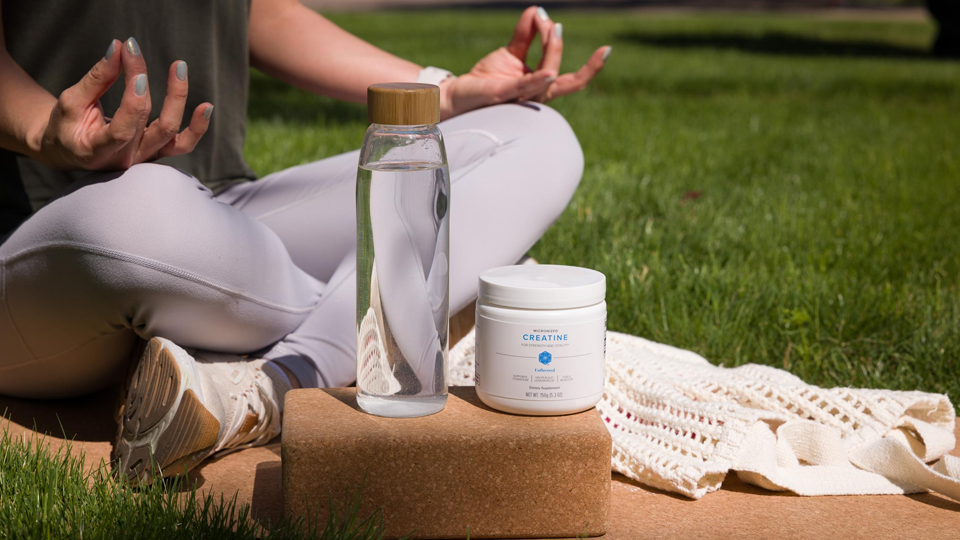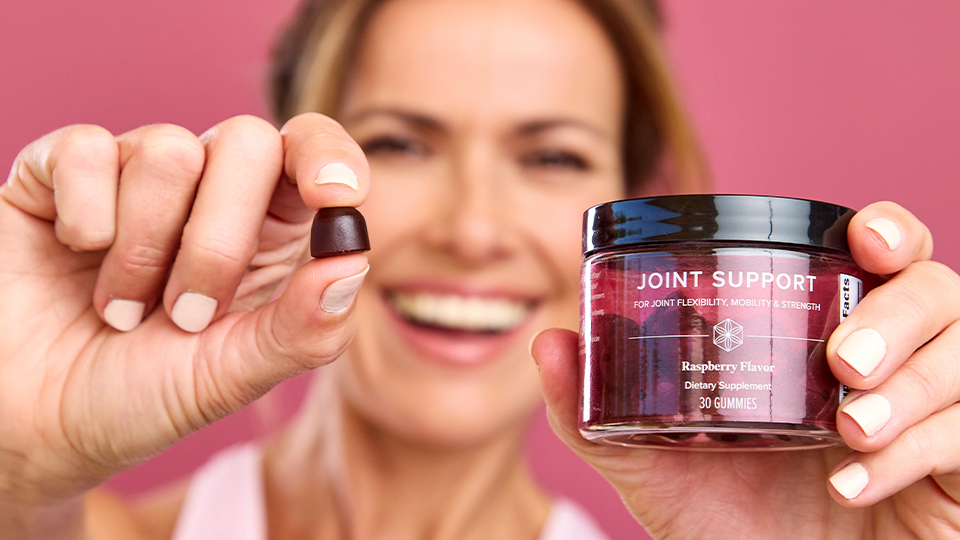Athletes who are in the habit of swigging a shot of Isagenix e+ just before workouts or an Ionix Supreme afterward might find that these products are giving them a little extra boost to performance too.
It’s thanks to their rich content of special botanicals with stress-mediating compounds called “Adaptogens” – especially one botanical, ashwagandha (Withania somnifera), that’s showing particular promise in recent research.
In one of the first studies to evaluate the adaptogenic effects of ashwagandha on resistance training, researchers found significant increases in muscle mass, strength, and recovery along with greater fat loss in an eight-week study (1).
The aim of this placebo-controlled study was to see the possible effects of ashwagandha extract on muscle strength/size, muscle recovery, testosterone level, and body fat percentage. For this, 50 young male subjects were randomized to either treatment or placebo groups. Subjects in the treatment group consumed 300 mg of ashwagandha root, while the control group consumed starch placebos. Following baseline measurements, both groups of subjects underwent resistance training for the entire study and measurements were repeated at the end.
After the eight-week period, the researchers found those who supplemented with ashwagandha had significantly greater increases in muscle strength than those individuals consuming the placebo: 58 pounds versus 101 pounds for the bench press, and 21 pounds vs 32 pounds on leg extension, for placebo, and ashwagandha-supplemented groups, respectively).
Compared to the placebo group, subjects receiving ashwagandha also had significantly greater reduction of exercise-induced muscle damage and a significantly greater decrease in body fat percentage: 1.5 percent vs 3.5 percent, for placebo and ashwagandha groups.
How Did This Happen?
These results are consistent with the findings of previous human studies with ashwagandha in demonstrating gains in muscle strength, body composition and testosterone (2, 3). However, these earlier studies did not follow the same parameters all in a single clinical trial or in conjunction with a resistance-training program.
The new study’s results suggest that ashwagandha supplementation could assist those who seek to increase muscle while burning fat.
One of the main reasons is ashwagandha appears to have positive metabolic effects that support muscle protein synthesis (1). In terms of energy production, ashwagandha also can support increased creatine levels (3). In addition, ashwagandha has been shown to improve focus and concentration (4). All these benefits are certainly desirable during any athletic performance.
Faster recovery was also noted in the ashwagandha-supplemented group and may have been due to enhancing antioxidant status, or its effects on eliminating lactic acid and other waste products from muscles (5). Ashwagandha was also well tolerated at the study dose with no side effects reported-findings consistent from previous studies (2, 3).
This study seems to be in line with other exercise benefiting adaptogenic herbs such as rhodiola (Rhodiola rosea), eleuthero root (Eleutherococcus senticocus), and schizandra berry (Schisandra chinensis) (6, 7).
Bottom line:
Adaptogens work well, especially for those who work out. Of course, Isagenix provides several options for incorporating obtaining Adaptogens into your day-to-day exercise routine: e+, Ionix Supreme, and t-Chai.
References
- Wankhede S, Langade D, Joshi K, Sinha SR, Bhattacharyya S. Examining the effect of Withania somnifera supplementation on muscle strength and recovery: a randomized controlled trial. J Int Soc Sports Nutr. 2015 Nov 25; 12:43.
- Raut AA, Rege NN, Tadvi FM, Solanki PV, Kene KR, Shirolkar SG, Pandey SN, Vaidya RA, Vaidya AB. Exploratory study to evaluate tolerability, safety, and activity of Ashwagandha (Withania somnifera) in healthy volunteers. J Ayurveda Integr Med. 2012 Jul; 3(3):111-4.
- Sandhu JS, Shah B, Shenoy S, Chauhan S, Lavekar GS, Padhi MM. Effects of Withania somnifera (Ashwagandha) and Terminalia arjuna (Arjuna) on physical performance and cardiorespiratory endurance in healthy young adults. Int J Ayurveda Res. 2010 Jul; 1(3):144-9.
- Chandrasekhar K, Kapoor J, Anishetty S. A prospective, randomized double-blind, placebo-controlled study of safety and efficacy of a high-concentration full-spectrum extract of Ashwagandha root in reducing stress and anxiety in adults. Indian J Psychol Med. 2012; 34:255–62.
- Singh G, Sharma PK, Dudhe R, Singh S. Biological activities of Withania somnifera. Ann Biol Res. 2010; 1:56–63.
- De Bock K, Eijnde BO, Ramaekers M, Hespel P. Acute Rhodiola rosea intake can improve endurance exercise performance. Int J Sport Nutr Exerc Metab. 2004 Jun; 14(3):298-307.
- Panossian A & Wikman G. Pharmacology of Schisandra chinensis Bail.: an overview of Russian research and uses in medicine. J Ethnopharmacol. 2008; 118:183–212.





